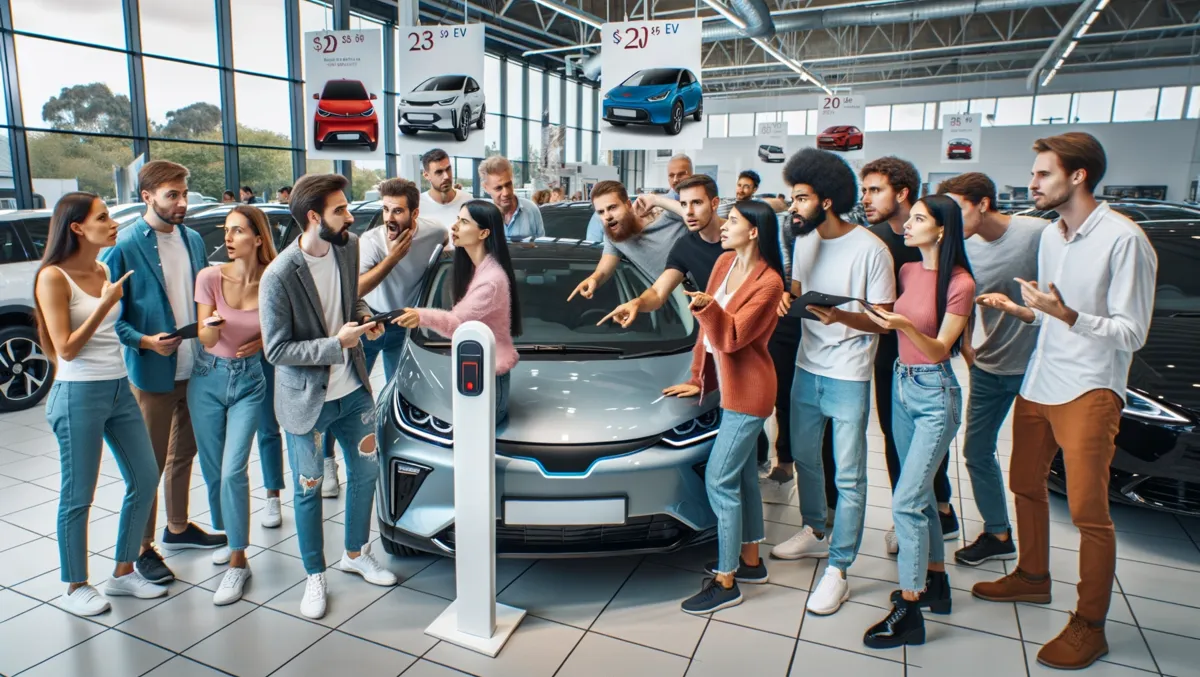New research conducted by global data and insights company Pureprofile sheds light on the chief obstacles hindering the adoption of electric vehicles (EVs) in Australia and New Zealand.
These critical challenges comprise high upfront costs, an inadequate number of public charging stations, and 'range anxiety' - the fear of a vehicle's battery depleting before reaching its destination or a recharging point.
The study, which surveyed over 2,000 Australians and 1,000 New Zealanders, found that nearly two-fifths (39%) of Australians deemed the upfront cost of EVs a deterrent from purchasing, whereas 65% blamed the rising cost of living as another dissuasive factor. Around 36% felt Australia was underserved by EV charging stations, and an additional 28% expressed anxiety over the vehicles' battery life.
Comparatively, the electric vehicle market has seen substantial uptake in other countries. Adoption rates of EVs in Norway touched a remarkable 80% of passenger vehicle sales by 2022, while Iceland (41%), Sweden (32%), the Netherlands (24%), and China (22%) trailed close behind. Australia's overall EV adoption rate of 3% fell short in comparison, despite a whopping 77% of the surveyed Australians expressing an intention to acquire an EV in the future.
A more substantial interest in EVs was noted in New Zealand, where adoption rates were pegged at 11%. Despite this, Kiwis also faced significant challenges comparable to their Australian counterparts. A substantial 52% of New Zealand respondents pointed to high upfront costs as a barrier to purchase, with 66% opining that escalating living expenses restricted their ability to invest in EVs. Moreover, almost half (49%) expressed openness towards purchasing secondhand EVs.
Anna Meiler, Pureprofile's Managing Director, APAC, spoke about these key findings. She states: "The surge in consumer demand for sustainability is undeniable, and the transportation sector is no exception."
"Our research underscores the pressing need for substantial government investment in EV infrastructure, mainly focusing on expanding charging station networks and promoting renewable energy sources."
"The barriers to higher EV adoption are evident, but the path to a sustainable future is within reach. Businesses and insurance companies, in particular, need to stay abreast of evolving EV attitudes and considerations, especially in light of developments such as the High Court quashing Victoria's EV levy," says Meiler.
Regarding consumer preferences, the research observed that Australians considering an EV purchase are inclined towards brands like Toyota (44%), Tesla (33%), and Hyundai (25%). On the other hand, New Zealanders exhibited a preference towards Toyota (48%), Kia (25%), and Hyundai (23%).
While the public charging station network in New Zealand is considerably robust (approx. one station for every 75km of state highway), 25% of the surveyed Kiwis justified their range anxiety by citing an insufficient number of charging stations as one of their concerns. Additionally, 36% reported worry about running out of battery mid-journey.



